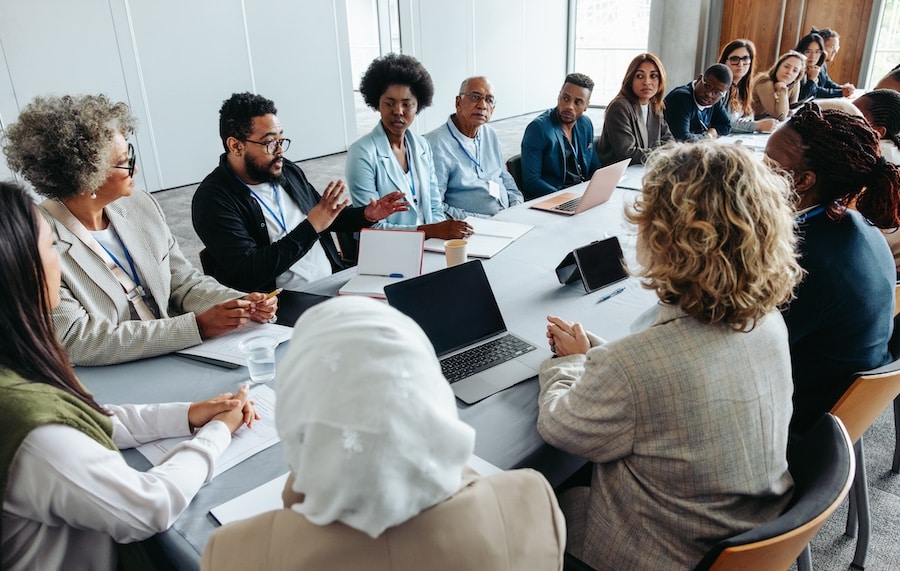
On June 26, 2025, the Council of State Governments Justice Center assembled leaders from workforce development, education, and corrections across seven Reentry 2030 states for the second session of the Reentry 2030 Workforce Development Peer Learning Cohort. These seven states are Alabama, Arizona, California, Nebraska, New York, North Carolina, and Washington (CSG Justice Center National Reentry Resource Center).
The primary focus of this gathering was employment-related collateral consequences – state laws and regulations that disqualify people with convictions from obtaining occupational or business licenses or that limit employers from hiring qualified justice-involved individuals.
Despite reforms, many such legal barriers remain – often outdated or causing unintended harm. The session helped participants understand the complex regulatory landscape and work toward better preparation strategies for individuals reentering society.
Key Reentry 2030 Employment Discussion Highlights
- The role of agencies and service providers in informing reentering individuals and workforce partners about potential employment barriers.
- Alignment between programming/services and job opportunities, ensuring consistency and support.
- Effective policies and practices, such as certificates of relief and fair-chance licensing laws, and how to help individuals use them to their advantage.
In smaller group sessions, state teams:
- Assessed state-specific collateral consequence laws.
- Explored use of the National Inventory of Collateral Consequences of Conviction, aiming to convert legal information into accessible, industry-specific career pathway resources for service providers and job trainers.
The Reentry 2030 Initiative
This peer-learning cohort is part of a year-long initiative under the Reentry 2030 banner, designed for states already in the initiative—or preparing to join—to collaborate across systems and build shared strategies for expanding economic opportunities for justice-impacted individuals.
Earlier sessions in this Reentry 2030 cohort are planned to address other critical themes, including day one work readiness; pre- and post-release training aligned with labor demand; employer engagement and fair-chance hiring; and data-driven tracking of employment and wage outcomes.
GEO Reentry Services Supporting Reentry 2030 States
Reentry 2030 is a national movement driving meaningful reforms in how states support individuals returning to their communities after incarceration. By addressing barriers to employment, education, and housing, corrections officials aim to break the cycles of recidivism, homelessness, and hospitalization. The stated goal of the Reentry 2030 initiative is to shift the narrative of reentry success, providing evidence-based solutions while celebrating the progress and achievements of states reaching their goals. Working to reform and reframe reentry empowers individuals to rebuild their lives, strengthens communities, and enhances public safety nationwide. Together, the initiative is focused on shaping a brighter future for reentry.
GEO Reentry Services operates non-residential reentry centers, in-prison treatment programs, and residential reentry centers for federal, state and local correctional agencies. It is working closely with states that have joined the Reentry 2030 initiative to reach their goals through public-private partnership. By combining research-based treatment and counseling services for parolees, probationers and pretrial service defendants, GEO Reentry assists community correctional agencies with important public safety efforts.
